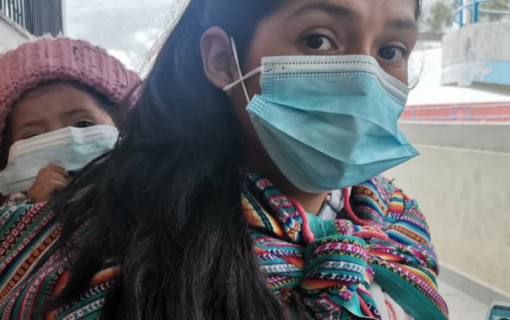Paraguay Pre-Election Technical Assessment
EXECUTIVE SUMMARY
The International Foundation for Electoral Systems (IFES) was invited by the United States Agency for International Development, Asuncion, Paraguay and Tribunal Superior de Justicia Electoral to conduct a Pre-election Technical Assessment in Paraguay.
IFES sent a three member assessment team to Asuncion on June 13--17, 1995. The team was composed of Marta Maria Villveces, expert in electoral legislation and administration; Carina Perelli, expert in election official training, electoral administration, and voter education; and IFES Program Officer Diana Cepeda. The objective of the team's visit was to assess the ongoing electoral reform in Paraguay and identify areas of need for technical assistance.
The team met with representatives of the three major political parties, civic groups, press, Deputies (Congressional) members of the Electoral Reform Commission, election technicians, and the Members of the Tribunal Superior de Justicia Electoral.
The outcome of the 1996 municipal elections will determine: the kind of party system Paraguay will have, the credibility of Paraguayan democratic institutions, the balance of power inside the governing party, Asociaci6n Nacional Republicana, and finally the possible coalitions the opposition may establish in the 1998 General Election.
In light of the importance of the upcoming elections and the lack of credibility in the previous electoral institution the Congress has undertaken extensive electoral reform. Recent electoral reform include the creation of the Tribunal Superior de Justicia Electoral (TSJE), responsible for organizing, and supervising elections. With the creation of the TSJE the functions of the Junta Electoral Central was terminated, to the point of a physical take-over. All employees were dismissed and the building was sealed. Days before the arrival of the team, the building had been reopened and the members had begun inspecting the building's contents.
Although the three magistrates or members have been appointed, the laws relating to the administrative and organizational structures have not yet been passed by the Congress. Thus placing the TSJE in an administrative and legal limbo.
The delay in the promulgating the electoral laws has been the result of the controversy over the voter's registry. The opposition has called for a total renovation of the voter's registry while the governing party maintains that a thorough updating of the registry is sufficient.
The technical team noticed a lack of understanding of the problems the TSJE is meeting on the part of the political class. Professional politicians of the major political parties have focused their attention on the debate over the registry, ignoring or dismissing the other problems the electoral apparatus has to deal with. It is therefore necessary to make them realize the extent and magnitude of these problems.
In their meetings with the TSJE, the Team encountered openness on behalf of the Magistrates to admit and request that they be provided technical assistance in order to successfully accomplish the very difficult task of organizing a competent and credible electoral institution.
As a result of the meetings with members of the TSJE, political leaders, and civic groups, the Assessment Team recommends that no technical advise or assistance be provided in the area of voter registry until the political groups in Congress reach a decision. Any involvement may be viewed as being aligned with a political party. However, the team recommends the immediate implementation of the following:
• organization of a donor's conference,
• inventory and testing of computer equipment,
• technical assistance in the development of administrative and technical structure of the electoral institution and,
• training of the TSJE members in electoral administration.
The IFES team strongly recommends that the focus of the technical assistance be to strengthen the administrative and organizational structures of the Paraguayan electoral institution.
Read the Full Report.









